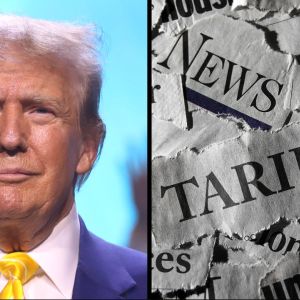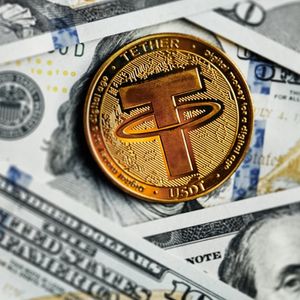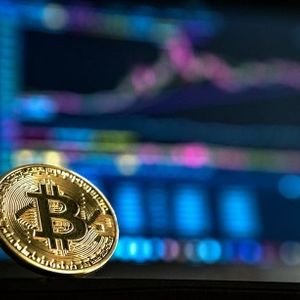In May, JPMorgan Chase CEO Jamie Dimon warned of a potential return to stagflation this year, an economic condition marked by stagnant growth coupled with rising inflation. Now, with Donald Trump’s proposed Tariffs, economists are debating whether Jamie Dimon’s predictions will come true. Speaking to panelists at a conference, Dimon pointed to years of extraordinary fiscal and monetary stimulus as contributing factors, including the Federal Reserve’s hiking of interest rates at the time. “ How can you tell me it won’t lead to stagflation? ” he questioned. While Federal Reserve Chair Jerome Powell dismissed these concerns earlier this year, describing stagflation as an unlikely scenario, recent developments have reignited the debate. President-elect Donald Trump’s aggressive tariff proposals are being scrutinized as a possible catalyst for economic disruptions reminiscent of the 1970s. Trump’s tariff threats raise economic tensions Trump has pledged to impose sweeping tariffs once in office, including a 25% levy on imports from Mexico and Canada and an additional 10% on goods from China. On the campaign trail, he further suggested a 10% to 20% tax on all imports and hinted at raising tariffs on Chinese products by as much as 60%. While some experts speculate these proposals might be negotiation tactics, the implementation of such broad-based tariffs could severely impact the economy. The risk, according to analysts, lies in higher consumer prices, disrupted supply chains, and retaliatory measures from trading partners. The U.S. economy hasn’t faced stagflation since the 1970s, a period defined by high unemployment, soaring inflation, and slow economic growth. During that time, the Federal Reserve’s initial response of lowering interest rates to address unemployment led to runaway inflation. In a dramatic shift, the Fed later prioritized combating inflation by aggressively raising rates, plunging the economy into a recession. Powell, recalling the challenges of that era, noted, “ It was 10% unemployment, high single-digit inflation, and very slow growth .” The 1970s stagflation, triggered in part by the Arab oil embargo, upended conventional economic theories about the relationship between inflation and unemployment. Current economic conditions differ from the 1970s Despite Dimon’s warnings, the U.S. economy today is far from the dire conditions of the 1970s. Unemployment stands at 4.2%, significantly below historical averages, and inflation has cooled to just above the Federal Reserve’s 2% target after peaking at a 40-year high two years ago. Economic growth remains steady, with the annualized rate at 2.8% last quarter, even as the Fed maintains elevated interest rates to keep inflation in check. The central bank’s recent rate cuts are expected to continue, though their full impact could take years to materialize. Economists are divided on the potential fallout from Trump’s proposed tariffs. Michael Feroli, chief U.S. economist at JPMorgan, argued that while tariffs could drive up prices for many goods, the inflationary impact might be limited to an initial surge similar to a sales tax increase. However, he cautioned that prolonged inflationary expectations could lead to higher wage demands and sustained price hikes. The risk of stagflation grows if other countries retaliate with tariffs on U.S. goods, which could force employers to cut jobs. Additionally, businesses facing heightened uncertainty might delay investments, further dampening growth. Feroli emphasized that stagflation remains a worst-case scenario rather than the baseline forecast. He noted that sufficient time for businesses to adapt to higher tariffs could mitigate the economic shock. Expert: Trump policies could slow down economic growth Another economist and expert financial analyst, Nouriel Roubini, cautioned that the U.S. economy could face the risk of stagflation if President-elect Donald Trump’s economic policies are implemented without restraint. Roubini, renowned for his accurate prediction of the 2008 global financial crisis, pointed to the potential consequences of unchecked political control under Trump’s administration. With the Republican Party holding sway over the executive branch, Congress, and the judiciary, Roubini argued that institutional checks on Trump’s policies would be minimal. “ There is no political discipline because they control the executive, the Supreme Court, the judges, the Congress, ” Roubini told ABC News. Instead, he suggested that the primary constraints on Trump’s economic decisions might come from financial markets, specifically bond traders. Roubini also outlined a dual-edged impact of Trump’s proposed economic agenda. Pro-business measures such as corporate tax cuts, deregulation, and increased fossil fuel production could stimulate growth and help curb inflation . However, other initiatives might have the opposite effect, reducing growth while driving up inflation, he noted. Meanwhile, Wells Fargo economists echoed JPMorgan’s Feroli’s sentiments in a recent note, warning of a “modest stagflationary shock” if tariffs are enacted shortly after Trump’s inauguration. They projected higher near-term inflation and slower growth but highlighted significant uncertainty around future policies. “ Should this occur, the probability of a stagflation scenario in our growth model would likely increase, ” the note stated. Still, both Wells Fargo and JPMorgan economists agree that inflation is unlikely to rise sharply beyond current levels. From Zero to Web3 Pro: Your 90-Day Career Launch Plan













